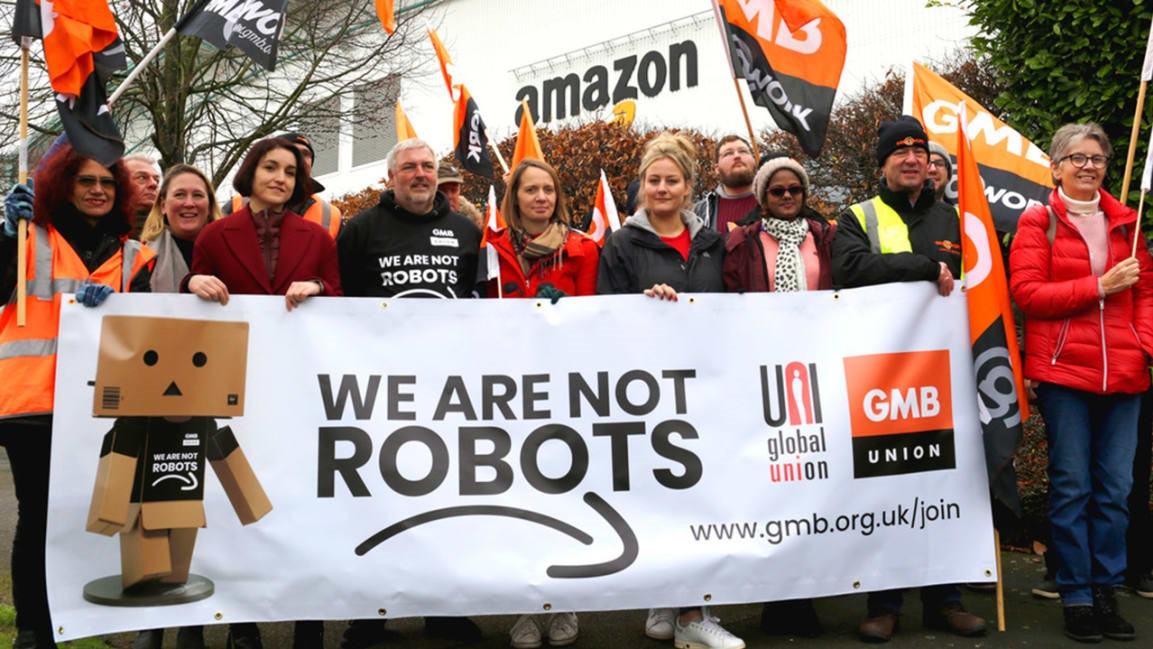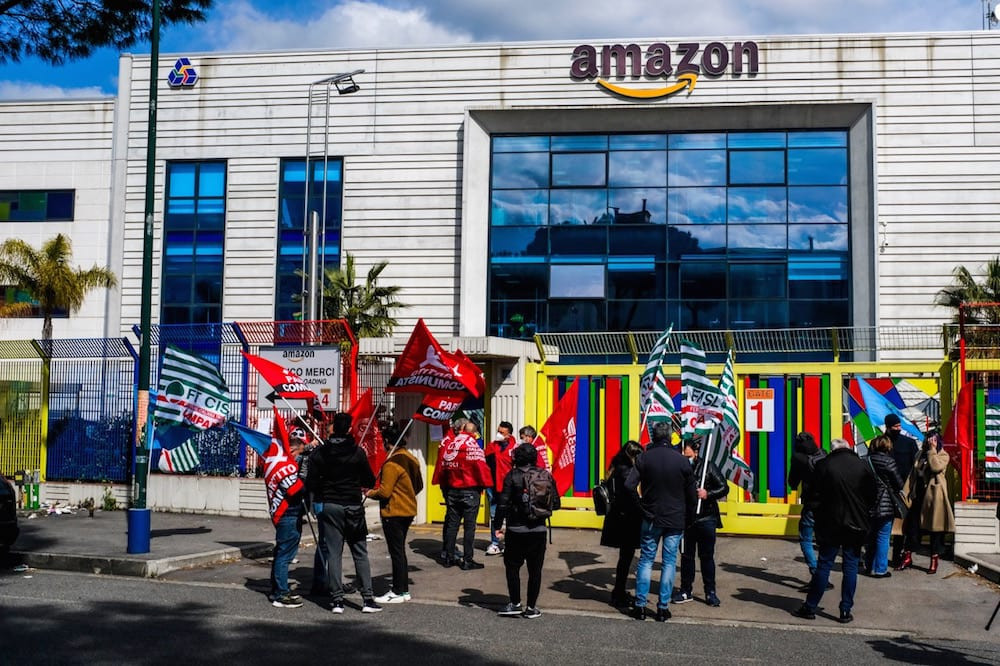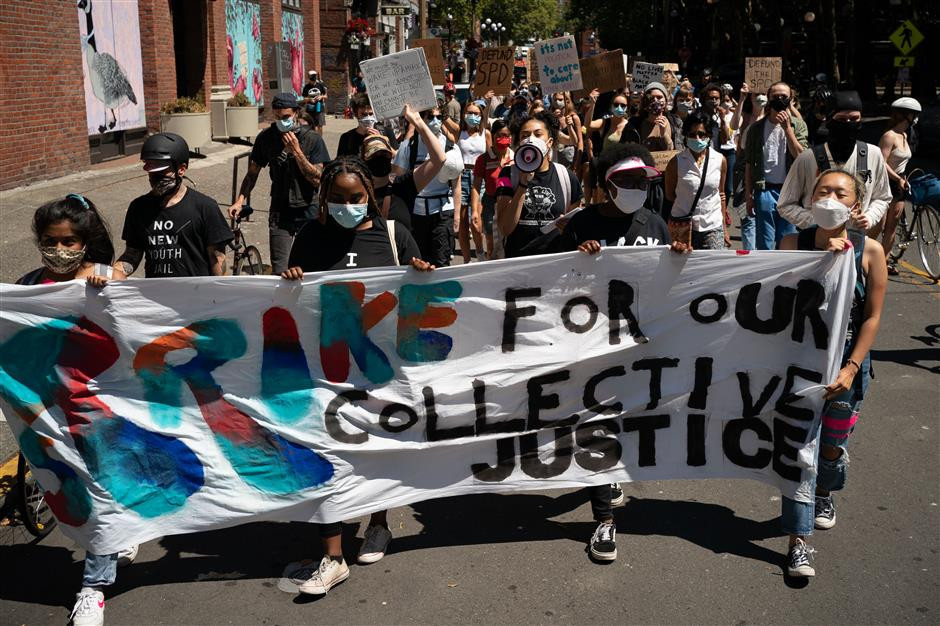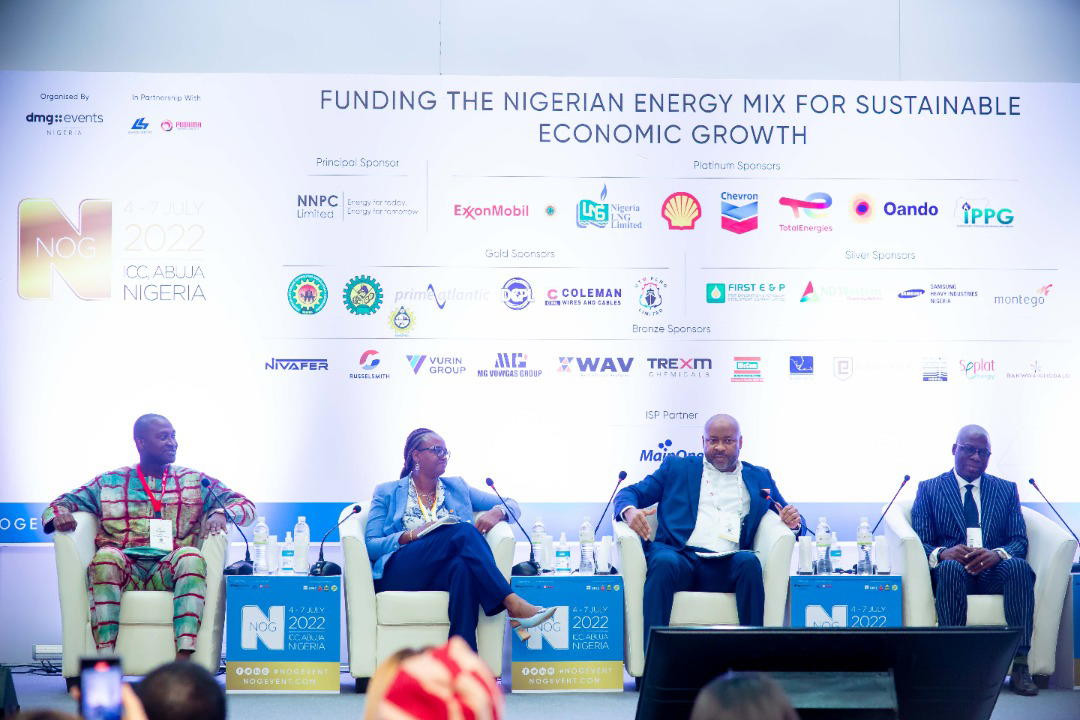Amazon Faces Historic Nationwide Strike: Thousands of Workers Walk Out During Holiday Rush
Thousands of Amazon workers across the United States launched a strike on Thursday morning, marking what the Teamsters union is calling the largest-ever strike against the retail giant. The walkout, encompassing seven major Amazon facilities, coincides with the peak of the holiday shopping season, potentially causing significant disruptions to package deliveries across the country. This action comes after the Teamsters gave Amazon a December 15th deadline to engage in collective bargaining negotiations, a deadline the company reportedly ignored.
The Impact of the Strike: Disruptions and Delays
The strike's primary focus is on seven key Amazon facilities strategically located in New York, Atlanta, Los Angeles, San Francisco, and Skokie, Illinois. Workers at these locations, along with hundreds of others nationwide who are encouraged to participate, have taken to picket lines to demand improvements in pay, benefits, and overall working conditions. The Teamsters have declared that the strike will last more than a day, providing striking workers with a $1,000 weekly strike pay. The potential impact on holiday deliveries is substantial, given the timing and scale of the walkout. The logistical ramifications are likely to be felt nationwide as many shoppers are expecting packages before Christmas.
Key Demands and Arguments
The Teamsters union represents approximately 10,000 Amazon staff and contractors across warehouses, delivery services, and air hubs. A core argument behind the strike is Amazon's refusal to formally recognize the union despite its years-long efforts to organize Amazon workers. This refusal to recognize the workers collective power is a key point of contention that has escalated this conflict to the point of a national strike. The union believes this recognition is crucial to achieve the necessary changes to workers' pay and benefits. Amazon, on the other hand, maintains that the Teamsters don't accurately represent the vast majority of its employees and that the strike is based on misleading claims. Amazon counters that it already offers competitive compensation and benefits packages, refuting the claims made by the striking workers. The company is also refuting the teamsters claims by saying that the Teamsters are illegally threatening and coercing workers to join their union.
Amazon's Response and Counterarguments
Amazon has responded to the strike by stating that it does not expect any significant operational impact. The company has issued statements contesting the Teamsters' representation of Amazon employees, claiming that the union has engaged in illegal intimidation tactics to coerce worker participation. Amazon's spokesperson, Kelly Nantel, has publicly stated that the Teamsters have misled the public about their level of employee support and that the company offers competitive pay, benefits, and opportunities for growth. Amazon has consistently challenged unionization efforts in court, disputing its formal employment status concerning contract workers and accusing the union of intentional misrepresentation of worker interests.
Amazon's Financial Performance and the Union's Perspective
The Teamsters highlight Amazon's substantial profits, emphasizing the company's multi-trillion dollar valuation and recent billion-dollar net income figures. They argue this financial success demonstrates Amazon's capacity to provide better compensation and working conditions for its employees. The contrast between Amazon's financial success and the workers' demands for improved compensation and working conditions has become a focal point of the conflict.
The Broader Context: Labor Relations and the Holiday Season
The Amazon strike is taking place against a backdrop of increased labor activism and a renewed focus on worker rights across various industries. The timing of the strike, just days before Christmas, adds another layer of complexity. The holiday shopping rush significantly increases the potential impact of any supply chain disruption. The union's strategic timing highlights the leverage that workers can have during periods of high consumer demand. Experts point out that this is a critical time for workers to exert influence over the supply chain, amplifying the potential consequences of the strike.
International Implications
The strike's impact is not limited to the United States. Amazon workers in Germany have expressed solidarity with their U.S. colleagues, indicating that international labor movements may be influenced by the outcome of the current negotiations. This event has highlighted the global implications of industrial action and the potential for interconnected labor movements in response to corporate actions.
A Clash of Titans: Amazon vs. The Teamsters
The confrontation between Amazon and the Teamsters represents a significant clash between corporate power and organized labor. The outcome of this dispute is likely to have a far-reaching impact on labor relations, particularly within the e-commerce industry. The scale and impact of this strike are unprecedented, underscoring the growing tensions between large corporations and worker demands for improved conditions. The success or failure of this strike will influence strategies of collective bargaining and worker organizing in the future. The next few days and weeks will reveal the extent of the impact and also how the two groups will decide to proceed.
This historic showdown highlights the complexities of modern labor relations and raises questions about corporate responsibility and the balance of power between employers and employees. The coming weeks will be critical in determining the outcome of this monumental labor dispute and its implications for the future of work in the United States and beyond.



















